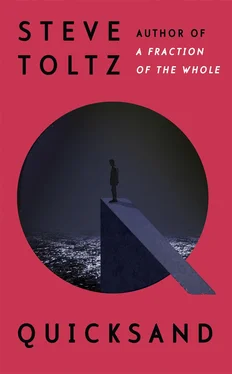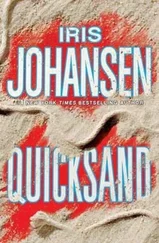Sergeant Oakes busted out a nervous laugh. Talk about your captive audience; Aldo knew we had to listen to everything he said in case it could be held against him in a court of law. He was disgusted at all the horrible pretend laughing he’d done in his life, he said now, and was upset that he could derive pleasure only from the sight of the dogs of two introverts attacking each other in the street. Whether he was in the grip of a methamphetamine high still in its ascendance or having some kind of manic episode, he was shifting in the chair and shaking violently and picking at the skin on his forearm as if ants were strutting on it, seemingly set upon the herculean task of emptying his head, like in some mental stock-clearance sale where everything must go. He said he was depressed that if we ever advanced to a one-world government it would only mean that national wars became civil wars, and he was enraged how nobody admitted that the single most irritating thing in our whole society was being the captured person in a citizen’s arrest.
He tilted his chair backwards and said it was a further annoyance that a life strategy of minimising regrets only winds up guaranteeing you suffer the maximum. I wanted to carry him out of there and put him to bed, and I wondered how far I’d get if I picked him up in my arms and made for the exit. Now, as he tilted back so far the chair looked like it would topple over, he said he was sick of watching so much porn it was affecting his genome. He brought the chair slamming down on the cement floor. He was revolted, he said, at how he was so impatient for the population to drop below replacement level he could barely contain himself. And he was grossed out that our only evidence of moral evolution was how we’d learned to forgive ourselves during the sins we committed, and not wait until after.
It was at this moment I noticed that he’d fixed his eye on some point in the room. What was he looking at? He was saying that it was very telling that the only time people looked serious was when they were counting money or watching their child vanish around a corner. Sergeant Oakes nodded at me morosely and I had the impression he’d developed a stoop since I first entered. I thought: It is us, not Aldo, who will crack under interrogation. Aldo swiped vaguely at his own face. I traced his focal point to either a tiny crack in the plaster on the wall or the fly beside it. He said there was a reason that ‘the kindness of nature’ isn’t a saying in any language. That people mistreat dogs because they can’t handle that type of devotion. That we’re not the worst civilisation ever to blight the earth, but we’re the most sensitive.
It struck me that every time he slammed the floor after tilting backwards, he edged the chair a few millimetres forward. He was saying that history isn’t a litany of peoples and civilisations, it’s a series of clinical trials. That the first sign of madness is inattention to ‘don’t walk’ signals. That the most significant impact of the digital world on our lives is we no longer wait for people to take their photographs when we want to pass in front of their cameras. ‘We just fucking go.’ Aldo rocked back and forth with metronomic rhythm and slammed the chair again, inching forward. Now I understood. He was in all probability aiming to lunge for the gun in Sergeant Oakes’s holster in order to turn it on himself. Would he know how to take the safety off? If we intercepted him in time, would it be misinterpreted as an attempt on our lives? He said it was downright inscrutable that most people he met were as self-defeating as child pornographers who put their incriminating hard drives in for service. Now he seemed about to make a move. He said we are always exaggerating when we praise someone’s integrity, and that when you have poor intuition, everything is counterintuitive. Aldo’s chair was less than a half-metre from Sergeant Oakes, who hadn’t noticed, busy as he was kneading his own left shoulder. Aldo said he was sickened that he only fell into lockstep with his fellow man during earthquakes and when the Olympics were held in his home city, he was sad that a return to naïveté would require substantial damage to his prefrontal cortex, and thought it plainly weird that nobody but him realised that Islamophobia is merely repressed harem envy. His voice, I thought, was now communicating nausea and transmitting it directly to the listeners. He was sorry he couldn’t articulate if pressed why he was so sure his life was superior to the life of a cow, and loathed the phrase ‘a serious but stable condition’, which implied a generally positive outcome while in reality meant someone’s life was probably ruined, that they were to be a paraplegic, or a quadriplegic. ‘Take it from me. Serious but stable is nothing to cheer about.’
Aldo’s incremental inching had now put him in arm’s reach of Oakes’s holster, and when he made his move I intercepted him with a hand on his shoulder and shoved him back into his seat. Oakes wasn’t sure what had just happened, and stood up at high alert with one hand balled into a fist and the other on his weapon, signalling me with urgent eyes his readiness to lend a hand in physically subduing this bona fide danger to society.
I sat opposite Aldo and said I was going to conduct the interview, and that while the recording device was active he should remain still.
A long, distressing moment followed where his lips were sucked into his mouth and he trembled with intense concentration, as if he were trying to hold in his own odour. Aldo toasted me with his styrofoam cup of water and spilled most of it down his chin, and in one long breath explained that what was worse than being treated like a statistic was being treated like a statistical anomaly. He insisted he had always felt, on any given day, that his worst fears would be realised, not the grave, but an automated bed or a cell. Not a shroud, but bandages or a uniform. Not death, but physical suffering or imprisonment. Nothingness was nothing to get excited about, but agony and incarceration were. That is to say, he had always felt extra-vulnerable to the whimsy of the microbe, or to damning circumstantial evidence, as in, he said, the results are in, the jury are back, the tests are positive, you’ve been found guilty, I recommend a course of chemotherapy, I sentence you to seven years’ maximum security; because for him, he said, there had always been two totally separate and more or less autonomous civilisations existing parallel to regular society — the prison society and the hospital society — and he perceived regular society as a narrow bridge with the other two lying on either side, and he’d always been terrified of losing his footing and falling into one or the other, into a world of solitary confinement or of burn wards, of laundry-room rapes or skin grafts, and where he would finally fall — into the horror of the prison, or into the horror of the hospital — was his greatest fear.
‘Wait,’ I said, ‘let me turn on the recorder.’
Aldo’s muffled voice hollers for me through the toilet door. The patrons in the beach club bar strike troubled smiles, their conversations silenced as they listen to his call of deep humiliation, or distress. I put down my bourbon and descend the stairs and rescue him from the narrow cubicle where he is perched upright with a feigned expression of boredom, as if a ride in my arms, to kill the time, might be just the thing. He drapes his arms around my neck and I ferry him, as if we are honeymooners, back up the steep staircase to his awaiting chariot. Once settled, he holds himself erect with perhaps his last remaining possession of value, his abdominal muscles, his face sharp and tightening in the sun’s hard glare. ‘Let’s go down there,’ he says, gesturing to the beach below. ‘I want to feel the sand.’
Читать дальше











